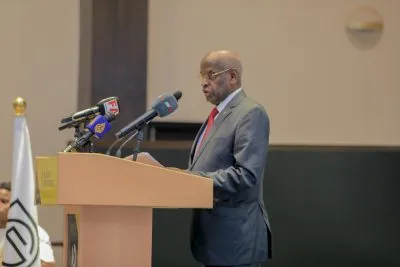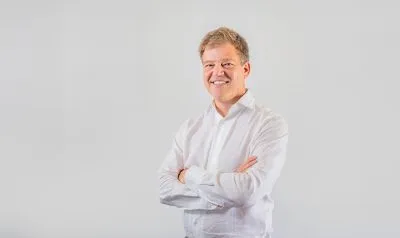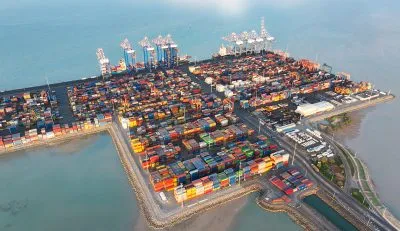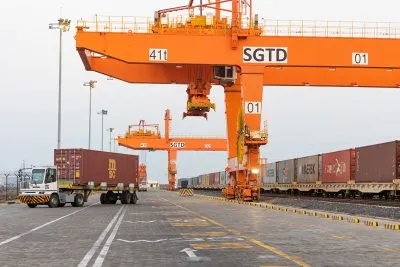Expounding on the partnership between the International Financial Corporation (IFC) and Djibouti, Cheick-Oumar Sylla, the IFC’s director for North Africa and the Horn of Africa, states: “We are committed to contributing to Djibouti’s journey to become a regional hub for trade, logistics and financial services.” This is in line with Agenda 2035 – the country’s national development plan that Djibouti is pursuing.
IFC seeks to promote sustainable economic growth by encouraging private investment. It also provides financing, advisory services and technical assistance to private companies, particularly small and medium-sized enterprises, to create jobs and reduce poverty.
The objectives of Djibouti’s national development plan are to stimulate growth and improve citizens’ quality of life by leveraging private investment and Djibouti’s geostrategic position.
Key targets are to build out Djibouti’s productive infrastructure, improve the investment climate, strengthen the capacity of small business and boost the country’s stature as a tourist destination. To support the vision, IFC is providing investment and technical assistance towards financing trade, financial institutions, affordable housing, and hotel construction.
Currently, IFC has two major investments in Djibouti. One is a trade guarantee facility for the East Africa Bank, while the other is in the construction of a hotel.
The East Africa Bank, licensed by the Central Bank of the Republic of Djibouti, was launched in 2010 to provide a broad range of products for large corporations, individuals, and small businesses in line with the highest standards of Sharia principles.
These investments, the international institution says, are in line with the global sustainability goals and will help Djibouti meet its commitments to green and inclusive growth.
IFC is also involved in three consultancy projects: supporting the government to structure and implement a bankable and commercially viable public-private partnership in affordable housing; strengthening the capacity and skills of the East Africa Bank in terms of global risk management and credit management; and helping to create an enabling business environment and to assess potential investment opportunities with the country’s first financial institution to offer leasing.
Cheick-Oumar Sylla says there has been progress in all these projects. An advisory mandate was signed with the government regarding the affordable housing project in 2022. The World Bank agency granted a trade guarantee facility of up to $5 million to the East Africa Bank under its Global Trade Finance programme to support its clients in the import and export sector as well as small- and medium-sized enterprises.
IFC is also working with the Djibouti Sovereign Wealth Fund to improve the legal and fiscal framework for leasing in the country, while exploring investment options for establishing a leasing company.
It has already signed, in March 2022, a new partnership with the Central Bank of Djibouti to strengthen the central bank’s stress-testing capabilities and systems, and ultimately to enhance the strength and resilience of Djibouti’s banking and financial system.
Joint initiatives
Promoting effective partnerships between the private and public sectors is very much par for IFC’s course. “Joint initiatives strengthen the delivery of essential services and infrastructure projects and I am happy with our strong collaboration with the government of Djibouti,” Sylla says, adding that “IFC has played a key role in public-private partnership projects in Morocco, strengthening collaboration between the government and the private sector for infrastructure development.”
Beyond these interventions, the upstream team at IFC is exploring ways, in line with their mandate, to make the energy, telecommunications and financial services sectors in Djibouti investment-ready.
Another area of cooperation is in climate strategy, where together with other World Bank agencies, including the Multilateral Investment Guarantee Agency (MIGA), IFC is working on a Country Climate and Development Report (CCDR) for Djibouti.
Ultimately, both Djibouti and IFC want a thriving private sector able to attract and deploy investment towards delivering goods and services for both local and international consumers.
According to a Djibouti Private Sector Diagnostic Study, conducted by IFC teams and published in October 2023, by improving the business climate, improving access to finance for businesses and increasing access to affordable energy and digital connectivity, Djibouti can attract more private investment, create jobs and support economic development.
Sylla outlines the three key recommendations from the report. “Firstly, Djibouti must take advantage of its geostrategic location and infrastructure to realise its potential as a regional hub for trade, telecommunications, and finance.
“Secondly, the country must capitalise on its natural resources to diversify its economy and maximise job creation. Finally, to promote entrepreneurship and SME development, Djibouti needs to boost human capital development and create better links with the business sector and military bases.”
Potential growth areas
The diagnostic report notes that the country’s stability and its transport and logistics infrastructure have established it as a regional trade hub, linking its neighbours, including Ethiopia, to global value chains. It also identifies tourism and fisheries as potential growth areas, while there is fertile ground for PPPs to develop infrastructure including roads, telecommunications, and energy.
In addition to its geostrategic position, Djibouti’s port and digital infrastructure (it has the latest SEA-ME-WE and 11 other undersea fibre cables running through it); its young and dynamic population; its stability; and its stable currency (which is pegged to the dollar) make it an arresting proposition for any investor.
Its membership of the Common Market for Eastern and Southern Africa (Comesa) means access to a market of 500 million consumers, while investors can also count on financing from regional and international financial institutions.
The financial sector is another source of strength, having grown from two banks in 2006 to a total of 13, including Islamic and commercial banks, by 2020.
“The banking sector can have a significant impact on Djibouti’s economy, firstly by improving access to finance for SMEs, and secondly by developing the microfinance sector to increase the number of loans to the many informal businesses that make up a large part of the country’s private sector,” Sylla stresses.
Although the sector is concentrated, with the two largest banks, Banque pour le Commerce et l’Industrie – Mer Rouge (BCIMR) and Bank of Africa Mer Rouge, holding 80% of the market share, smaller institutions are steadily increasing their presence.
Sylla is convinced that the partnership with Djibouti will yield the right results and IFC is determined to stay the course. “We are committed to supporting the government of Djibouti’s reform agenda aimed at creating a strong and dynamic private sector, as well as promoting private sector-led initiatives to strengthen regional integration in the Horn of Africa,” he says. As 2035 approaches, Djibouti’s leaders will be heartened to have such a big hitter in their corner.
Want to continue reading? Subscribe today.
You've read all your free articles for this month! Subscribe now to enjoy full access to our content.
Digital Monthly
£8.00 / month
Receive full unlimited access to our articles, opinions, podcasts and more.
Digital Yearly
£70.00 / year
Our best value offer - save £26 and gain access to all of our digital content for an entire year!

 Sign in with Google
Sign in with Google 



